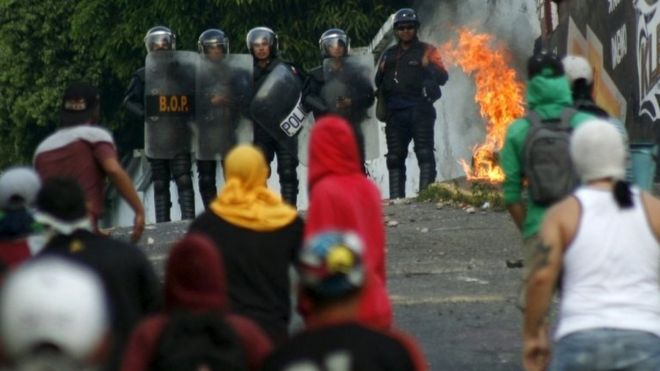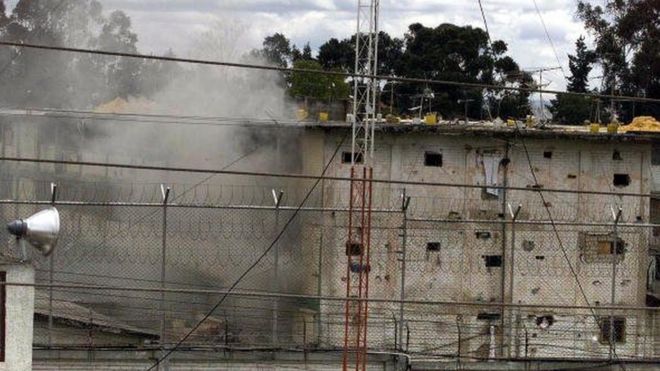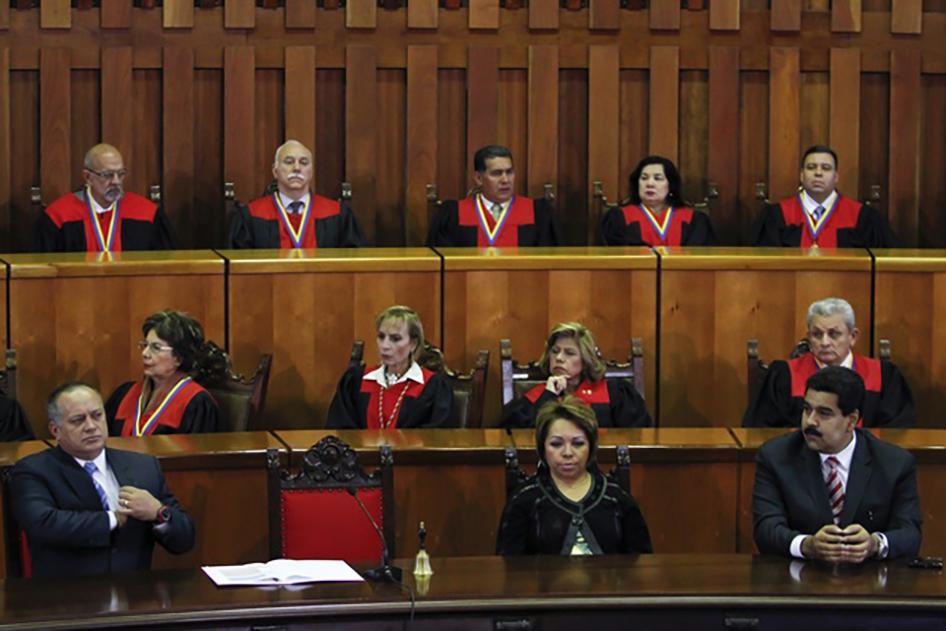By Kaitlyn Degnan
Impunity Watch Reporter, South America
SAN CRISTOBAL, Venezuela – Students in San Cristobal engaged in protests and clashed with police on Wednesday. The movement followed Tuesday’s Venezuelan Supreme Court ruling that the opposition-controlled National Assembly could not review Court appointments.
The ruling specified that the National Assembly’s power of review was limited to the executive and does not extend to the judiciary. The Court said that any attempt by the Assembly to remove Supreme Court justices or review the appointments would be “overstepping [their] authority.”
13 Supreme Court nominations and 21 alternates were pushed through by outgoing lawmakers following the historical December 7th elections, where the socialist party lost for the first time in 17 years. The appointments were meant to fill spots created by judges that retired early. The current opposition-controlled National Assembly have cited the openings as evidence that judges were forced to retire.

The Supreme Court is known for ruling in support of Maduro and his government’s policies, frustrating the National Assembly’s attempts to curb Maduro’s power. The Court has not ruled against Venezuela’s executive branch since Hugo Chavez won the presidency in 1999. Last month, the Court overturned the National Assembly’s decision to veto Maduro’s declaration of emergency powers in response to the worsening economic environment.
In response to the ruling, students from Catholic University took to the streets in San Cristobal, allegedly throwing Molotov cocktails and petrol bombs. Demonstrators wearing masks painted in the colors of the Venezuelan flag set up roadblocks in the city. San Cristobal was the site of the start of a series of anti-government protests in 2014 which left 43 people on both sides dead.
The National Asssembly has devised a three-part plan to oust Maduro and his supporters from power in the executive branch. Simultaneously, the Assembly will pursue a presidential recall referendum, a constitutional amendment to shorten presidential terms, and a campaign for Maduro’s resignation. Observers expect the opposition to formally announce the plan soon.
For more information, please see:
Agence France-Presse – Venezuelan opposition delays announcing plan to oust Maduro – 3 March 2016
Agence France-Presse – Venezuelan students clash with police over court ruling – 3 March 2016
Associated Press – Venezuela Opposition Picks Strategy to Oust President – 3 March 2016
BBC – Venezuela students protest against Supreme Court ruling – 3 March 2016
Reuters – Venezuelan opposition hones in on strategy to end Maduro’s rule – 3 March 2016



